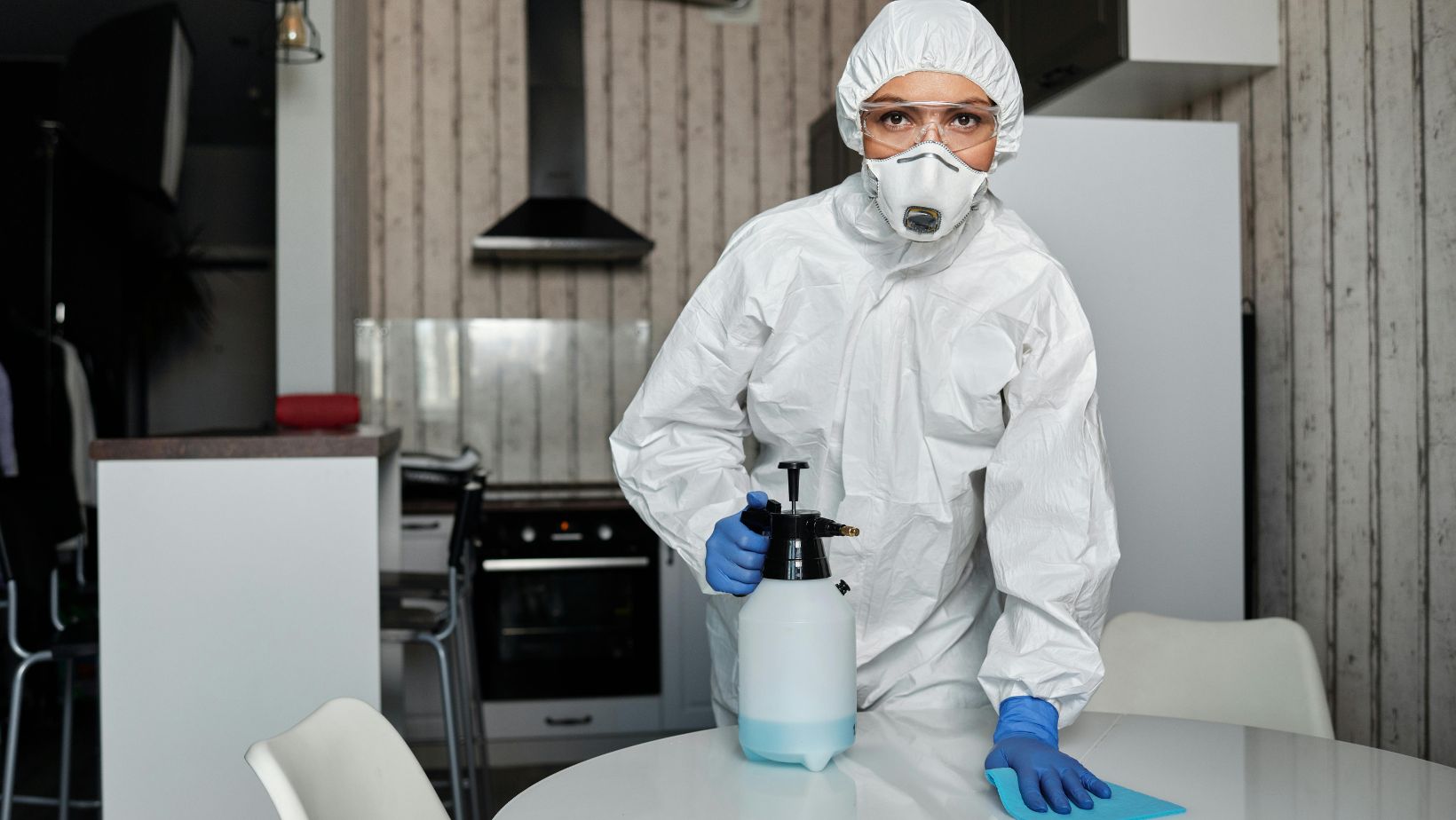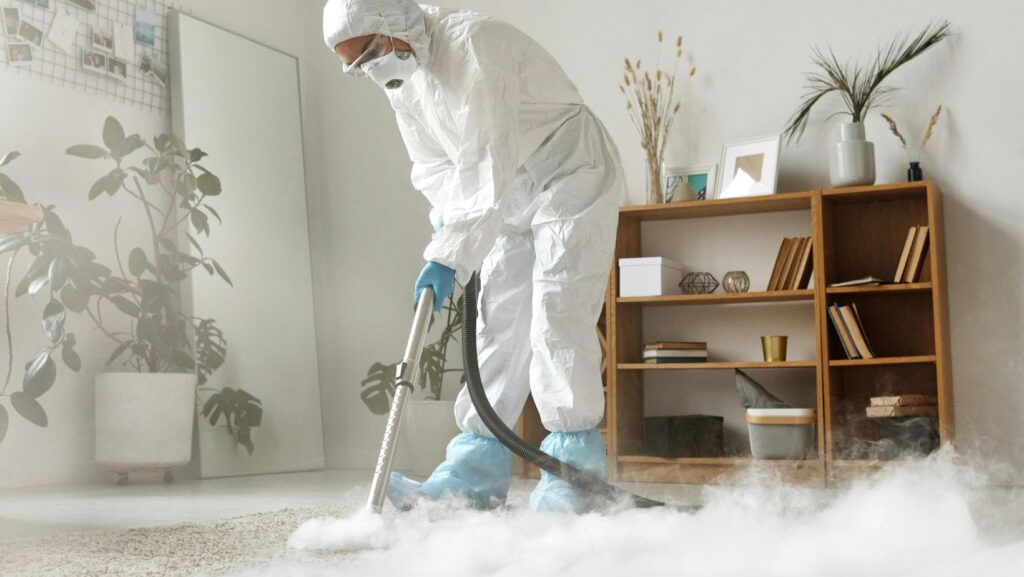Creating a healthy home environment is a priority for many families, and eco-friendly pest control is a key component of achieving this goal. Traditional pest control methods often rely on harsh chemicals that can affect indoor air quality and pose health risks to both humans and pets. More homeowners are seeking greener solutions that effectively tackle pests without compromising the safety and well-being of their loved ones. Exploring various eco-friendly pest control solutions promotes a healthier home and contributes positively to the environment. From natural repellents to professional services that prioritize sustainability, numerous strategies can help you maintain a pest-free home responsibly.
Understanding Eco-Friendly Pest Control Methods
Eco-friendly pest control methods utilize organic ingredients and environmentally conscious strategies to manage pest populations. These approaches often emphasize prevention and rely on understanding the behavior and biology of common pests. Diatomaceous earth, a non-toxic powder made from fossilized algae, acts as a natural insecticide by damaging the exoskeletons of crawling insects. Another common method is introducing beneficial insects, like ladybugs and lacewings, which prey on harmful pests, enabling a natural balance in the ecosystem.
Supplying adequate sanitation and proper waste management plays a significant role in preventing pest infestations. Ensuring that food is properly stored and that garbage is disposed of regularly can drastically reduce the likelihood of attracting pests into your home. Utilizing these techniques powers pest control and promotes sustainability, as they often involve minimal environmental impact. Homeowners can benefit from natural repellents like citronella, eucalyptus oil, and peppermint to deter insects safely and effectively.
Natural Remedies for Household Pest Problems
Many households grapple with pests such as ants, spiders, and rodents. Fortunately, numerous natural remedies can address these issues without the use of toxic chemicals. A mixture of vinegar and water can serve as an effective ant repellent when applied to entry points. Similarly, a soap-and-water solution can suffocate soft-bodied insects like aphids and spider mites.
Essential oils such as tea tree oil, lavender, and lemon can act as powerful deterrents. These oils can be mixed with water and sprayed in areas where pests are commonly seen. The pleasant scent for humans wards off pests effectively, and this makes for an enjoyable living environment as well.
Benefits of Eco-Friendly Pest Control
Opting for eco-friendly pest control methods can yield significant benefits that extend beyond just pest eradication. One of the main advantages is improved indoor air quality. By avoiding chemicals, fewer volatile organic compounds (VOCs) are released into the air, creating a healthier atmosphere for the entire household. This can be particularly beneficial for individuals with allergies, asthma, or other respiratory conditions.
Implementing eco-friendly pest control measures often results in long-term solutions. By understanding pest behaviors and addressing the underlying causes of infestations, eco-friendly methods can help prevent future problems. This sustainable approach fosters responsible stewardship of the environment, ensuring that harmful toxins do not endanger local wildlife and ecosystems.
The Role of Professionals
While natural remedies can be effective, there are times when enlisting the help of professional pest control services becomes necessary. Trained specialists can assess the severity of infestations and tailor solutions to fit specific situations. Many professional Efficient Pest Removal Services are now adopting eco-friendly practices aimed at minimizing environmental impact while maximizing effectiveness. These professionals possess specialized knowledge in identifying pest nesting sites, breeding habits, and potential entry points.
Through Integrated Pest Management (IPM), they can employ a combination of mechanical, biological, and chemical control methods to achieve optimal results. When seeking professional help, look for companies that promote environmentally responsible solutions and transparent practices.
Preventative Measures to Keep Pests Away
Beyond treatments, proactive steps can minimize the risk of pest infestations in the future. Regularly inspecting your home for cracks and gaps can thwart pests seeking shelter. Sealing entry points with caulk or weatherstripping can prevent pests like rodents and ants from sneaking in undetected.
Maintaining a clean environment both indoors and outdoors is crucial. Yard cleanliness, such as removing debris, trimming overgrown plants, and storing firewood away from the house, can reduce habitats for pests. Indoors, routine cleaning practices, including vacuuming and thorough dusting, can eliminate potential food sources and nesting areas.
Staying Informed About Pest Trends
As pest management strategies evolve, staying informed about the latest trends in eco-friendly pest control is essential. Engaging with local workshops, webinars, and community events can provide valuable insights into sustainable practices and innovative techniques. Following reputable blogs and websites dedicated to environmental health can help you learn more about preventing infestations and responding effectively when they occur.
By understanding the latest research and emerging eco-friendly methods, homeowners can make informed decisions about pest control while prioritizing both health and sustainability. Embracing a continuous learning mindset allows for adaptability in an ever-changing environment.

Embracing eco-friendly pest control enriches your living space and supports a greater mission of protecting the planet. Everybody has a role to play in promoting a healthy environment, and by choosing sustainable options, we contribute significantly to that goal.
